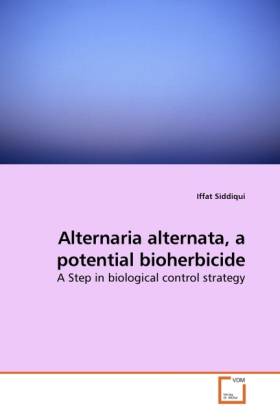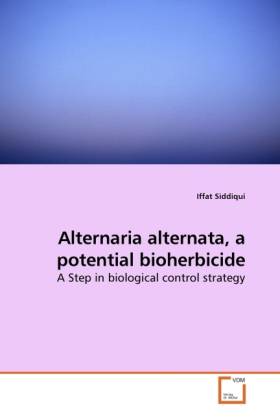
- Afhalen na 1 uur in een winkel met voorraad
- Gratis thuislevering in België vanaf € 30
- Ruim aanbod met 7 miljoen producten
- Afhalen na 1 uur in een winkel met voorraad
- Gratis thuislevering in België vanaf € 30
- Ruim aanbod met 7 miljoen producten
Zoeken
€ 77,95
+ 155 punten
Omschrijving
Weeds undesirable plants have pour many negative effects on the yield of the economically growing crops .To control these noxious plants scientist tried chemical control strategies but for last many years these chemicals have been found to be very harmful for the other lives. This has necessitated a more intensive search for alternative weed management strategies .The idea of using plant pathogens for management of weeds is not new; however, the concept of the development of a bioherbicide technology as a specialized field of study is very young. In present study use of two strains of Alternaria alternata has been tested on two noxious weed species Rumex dentaus and Chenopodium album, of wheat crop and efforts have been made to evolve commercial bioherbicides for their control. Different formulations and environmental conditions were used against different growth stages of the respective weeds. The above mentioned study will open new areas for A. alternta to be used as biological control agents.
Specificaties
Betrokkenen
- Auteur(s):
- Uitgeverij:
Inhoud
- Aantal bladzijden:
- 236
- Taal:
- Engels
Eigenschappen
- Productcode (EAN):
- 9783639191516
- Verschijningsdatum:
- 11/11/2009
- Uitvoering:
- Paperback
- Formaat:
- Trade paperback (VS)
- Afmetingen:
- 152 mm x 229 mm
- Gewicht:
- 349 g

Alleen bij Standaard Boekhandel
+ 155 punten op je klantenkaart van Standaard Boekhandel
Beoordelingen
We publiceren alleen reviews die voldoen aan de voorwaarden voor reviews. Bekijk onze voorwaarden voor reviews.











